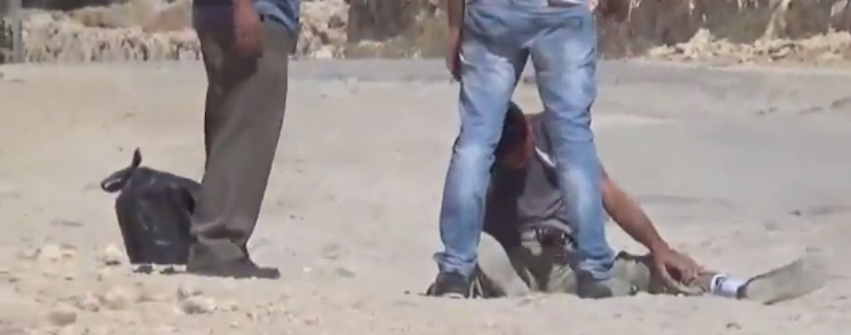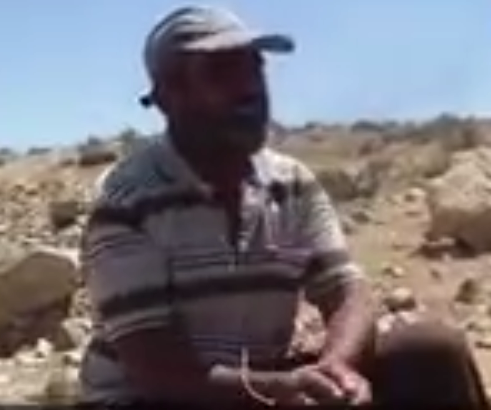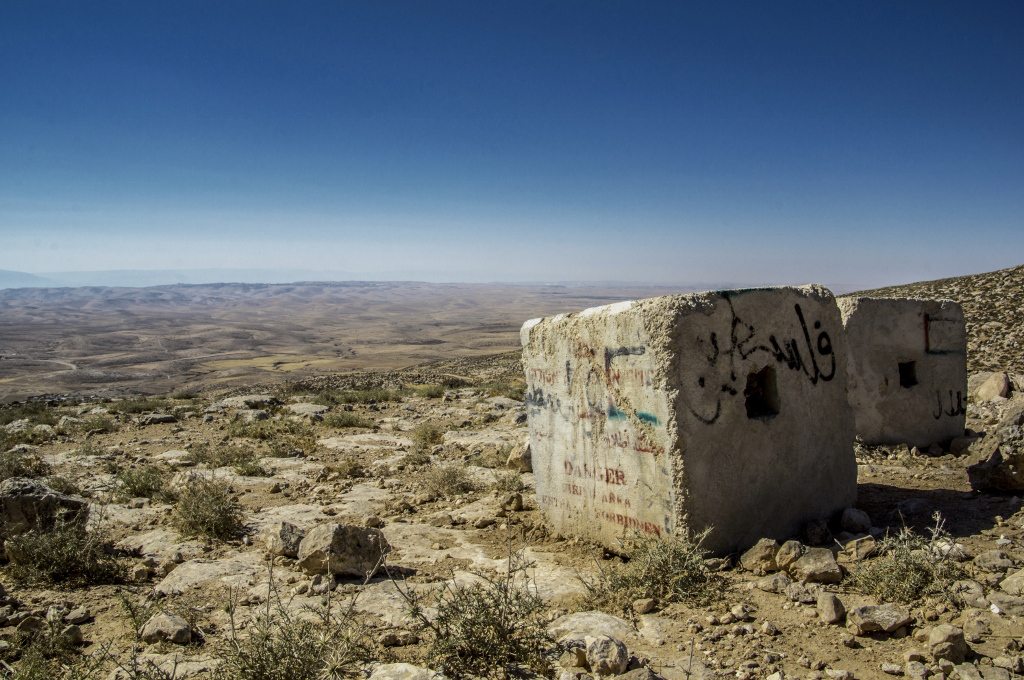Tag: South Hebron Hills
-
Israeli police beat a Palestinian and confiscated his tractor
13th August 2014 | Operation Dove | at-Tuwani, Occupied Palestine On August 12th, at approximately 9.45 a.m., near the South Hebron hills area village of at-Tuwani, Israeli Police beat a Palestinian and confiscated his tractor. The 20-year-old man was driving his tractor, carrying a water tank, from the village of at-Tuwani to Yatta City when the Israeli police…
-
VIDEO: Palestinian shepherd detained by Israeli soldiers
29th June 2014 | Operation Dove | Saddith Thala, Occupied Palestine On June 27th, Israeli soldiers detained a Palestinian shepherd from the South Hebron Hills village of Saddith Thala. He was accused of throwing stones towards a setter’s car, passing on the Bypass road 317. He was released, as there was no evidence to support the charges. A…
-
Pressure on Firing Zone 918 residents continues
24nd June 2014 | Christian Peacemaker Teams | South Hebron Hills, Occupied Palestine On 15 May 2014, Israeli courts extended the mediation process between the Israeli army and the villages within Firing Zone 918 for another three months. The Israeli army wants to use this area for training. Israeli, Palestinian and international human rights organizations have condemned…



